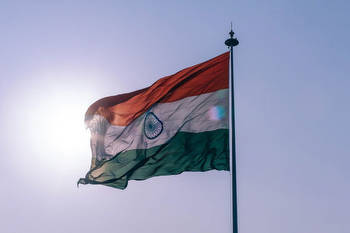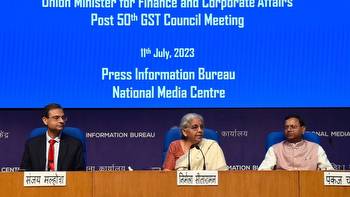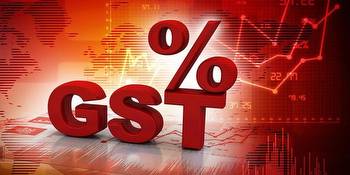Who are the Real Winners?
Online gaming is one of the world’s fastest-growing and most profitable sectors, particularly in India, where millions of individuals enjoy sports betting, casino games, poker, fantasy sports, and other activities.
Online gaming is also one of the most contentious and regulated sectors in the world, particularly in India, where the legal status and taxes of online gaming are confusing and complex, and where the government and society have opposing views and attitudes on the subject.
The 28% GST rate on online gambling has prompted much controversy and discussion among stakeholders and the general public since it has several ramifications and effects on the sector and the economy. In this article, we will examine and analyze the GST rate of 28% on online gaming, and its impact and influence on the online gaming industry and the economy.
Unveiling the Reasons and Motives for the 28% GST Rate on Online Gaming
The GST Council authorized a standard GST rate of 28% on online gambling, casinos, and horse racing, applied to the full face value of bets or chips rather than operator fees or commissions, during its 50th and 51st meetings in July and August 2023, respectively. The decision was reached to adopt the 28% GST rate on internet gambling, casinos, and horse racing beginning October 1, 2023, with a six-month review.
The justification for this GST rate is based on various considerations. To begin, internet gaming, including the use of legal betting apps in India, is considered gambling and is viewed as a social evil deserving of deterrence by heavy taxes, by the government’s and society’s constitutional and moral obligations.
Online gaming is often viewed as a source of black money and money laundering, endangering national security and economic stability. As a result, imposing a high tax rate is viewed as a method to regulate and mitigate these risks, by the government’s and society’s legal and budgetary duties. Finally, given the profitable nature of the online gaming sector and its potential for revenue and income production, a high tax rate is justified on financial and developmental grounds.
Addressing Challenges Faced by Online Gaming Operators and Players Due to the 28% GST Rate
The challenges caused by the 28% GST rate on online gambling affect operators and players in several critical areas. The high tax rate severely decreases their profitability since it is applied to the entire face value of bets or chips rather than just the actual revenue from fees or commissions. This hinders investment and industry engagement.
Furthermore, the GST rate appears to be unjust since it fails to recognize the unique characteristics of online gambling. Online gaming is regarded as a luxury and a sin good, even though it contributes significantly to digital and creative economies and promotes national wealth. This view ignores the various benefits of internet gaming, such as amusement, enjoyment, education, and sociability, as well as the skill, strategy, and knowledge necessary to play it. The potential contributions of the online gaming industry to economic growth are impeded by a lack of incentives or relief available in other businesses.
Examining Opportunities and Benefits for Offshore and Fraudulent Online Gaming Companies Due to the 28% GST Rate
The 28% GST rate contributes significantly to a huge imbalance in demand and supply, which offshore and fraudulent online gaming enterprises are eager to exploit and take advantage of. With the introduction of GST duties and the possibility of legal repercussions, reputable and licensed online gambling firms are being compelled to abandon the sector. This departure creates a hole that unscrupulous businesses readily fill, establishing a market monopoly.
To increase their profits, these organizations use unethical techniques like game rigging and manipulation, as well as charging expensive fees and commissions and maintaining low-quality security standards. As a result, they hold tremendous market power, leaving players and customers vulnerable to unfair tactics, fraud, and fraudulent operations.
Exploring Solutions and Alternatives for Addressing the 28% GST Rate on Online Gaming Faced by the Industry and Government
Essentially, the online gaming industry is advised to embrace self-regulation by enacting standards and laws that promote fairness and moral behavior. This policy prioritizes player safety while also safeguarding the industry’s credibility. To encourage responsible and safe gaming, the industry should also focus on educating players and the wider public on the legal and social elements of online gaming.
Furthermore, the government should enact a comprehensive and standard law that controls and gives licenses for online gaming while distinguishing between skill and chance games. Legislation should establish a regulatory agency to oversee the sector, ensure legal compliance, and defend the rights of participants, as well as explicitly identify the foundation for this distinction.
Conclusion
The 28% GST rate on online gambling, a game-changer, and a season-maker will set the tone and direction for both the online gaming business and the wider economy. To ensure that the 28% GST rate on online gaming truly benefits the online gaming industry and the economy, the government and the online gaming industry should collaborate and work together to find a balance and a compromise between revenue and income generation and online gaming regulation and licensing.




































